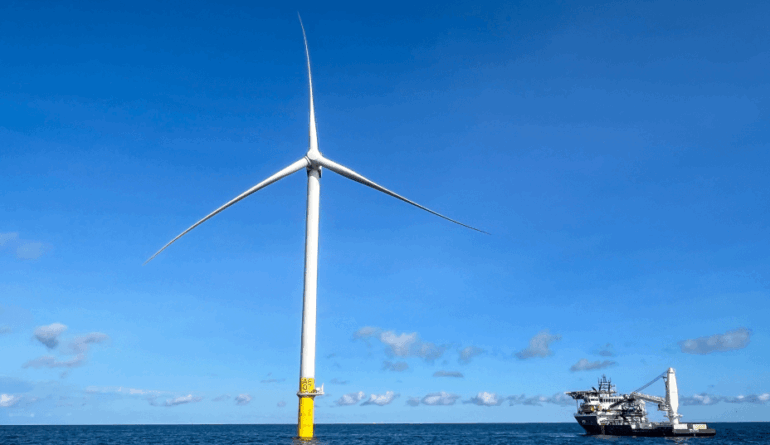US Government Halts Revolution Wind Project Over National Security Concerns

The US Department of the Interior has ordered a halt to the Revolution Wind Project, an offshore wind initiative that is approximately 80% complete. On August 22, 2025, Matthew Giacona, the Acting Director of the Bureau of Ocean Energy Management (BOEM), sent a letter to the Danish energy firm Ørsted, instructing them to “halt all ongoing activities” due to unspecified national security concerns. This unexpected stop-work order has raised questions about the rationale behind the decision, particularly since the project had previously received approval.
The Revolution Wind site is located off the coasts of Rhode Island and Massachusetts, with Connecticut also involved as a partner. BOEM is responsible for determining offshore wind areas for leasing, a process that includes evaluating environmental, national security, and economic factors. The site was designated for wind development back in 2013, leading many to wonder why these concerns only emerged now.
In his letter, Giacona indicated that there are worries related to the protection of national security interests and potential interference with activities in the exclusive economic zone. He did not clarify the specific nature of these concerns, which has fueled speculation about the motivations behind the halt. Critics have noted the timing of the order, suggesting it may be politically influenced, especially as it targets states governed by Democrats.
The halt has broader implications beyond the immediate project. If the Revolution Wind initiative is permanently stopped, it could jeopardize hundreds of jobs in Rhode Island and thousands more in Ørsted’s supply chain across 40 states in the US. This development comes against a backdrop of increasing competition for energy resources and ongoing discussions about the transition to renewable energy.
Questions regarding national security have been part of the broader conversation around offshore wind projects. In particular, there’s interest in whether similar concerns have been raised regarding the Coastal Virginia Offshore Wind project, which is also under construction. Virginia is home to Naval Station Norfolk, the largest military facility globally, suggesting that any national security issues should equally apply there.
Political dynamics play a significant role in this situation. While the halt on Revolution Wind has garnered sharp criticism from local leaders, including Rhode Island Governor Daniel McKee and Connecticut Governor Ned Lamont, the implications of the order are further complicated by recent developments in energy policy. For example, a gas pipeline proposal has been mentioned in conjunction with the halt, raising further questions about the administration’s priorities.
Adding another layer to the situation, the Pentagon has not previously raised significant concerns regarding offshore wind projects in New England. Reports indicate that military representatives were consulted during the initial site selection process and no substantial issues were identified at that time. The recent emergence of national security issues has led to speculation about whether external factors are influencing these decisions.
Interestingly, the government’s interest in energy projects coincides with geopolitical considerations. In 2025, the US expressed interest in annexing Greenland, which is significant given Ørsted’s close ties to the Danish government. The company, publicly listed and state-owned, has a majority stake held by Denmark, adding a layer of complexity to the ongoing discourse.
On the same day that the stop-work order was issued, California Governor Gavin Newsom announced a new memorandum of understanding with Denmark aimed at enhancing cooperation on green technologies. This move suggests that other states are eager to pursue renewable energy initiatives, contrasting sharply with the halt on the Revolution Wind project.
The future of the Revolution Wind Project remains uncertain as local officials and industry stakeholders await clarity from the Department of the Interior. Until specific national security concerns are addressed, the implications for the project and the broader offshore wind sector will be closely monitored. The situation exemplifies the intricate balance between energy development, national security, and political interests in the United States.






